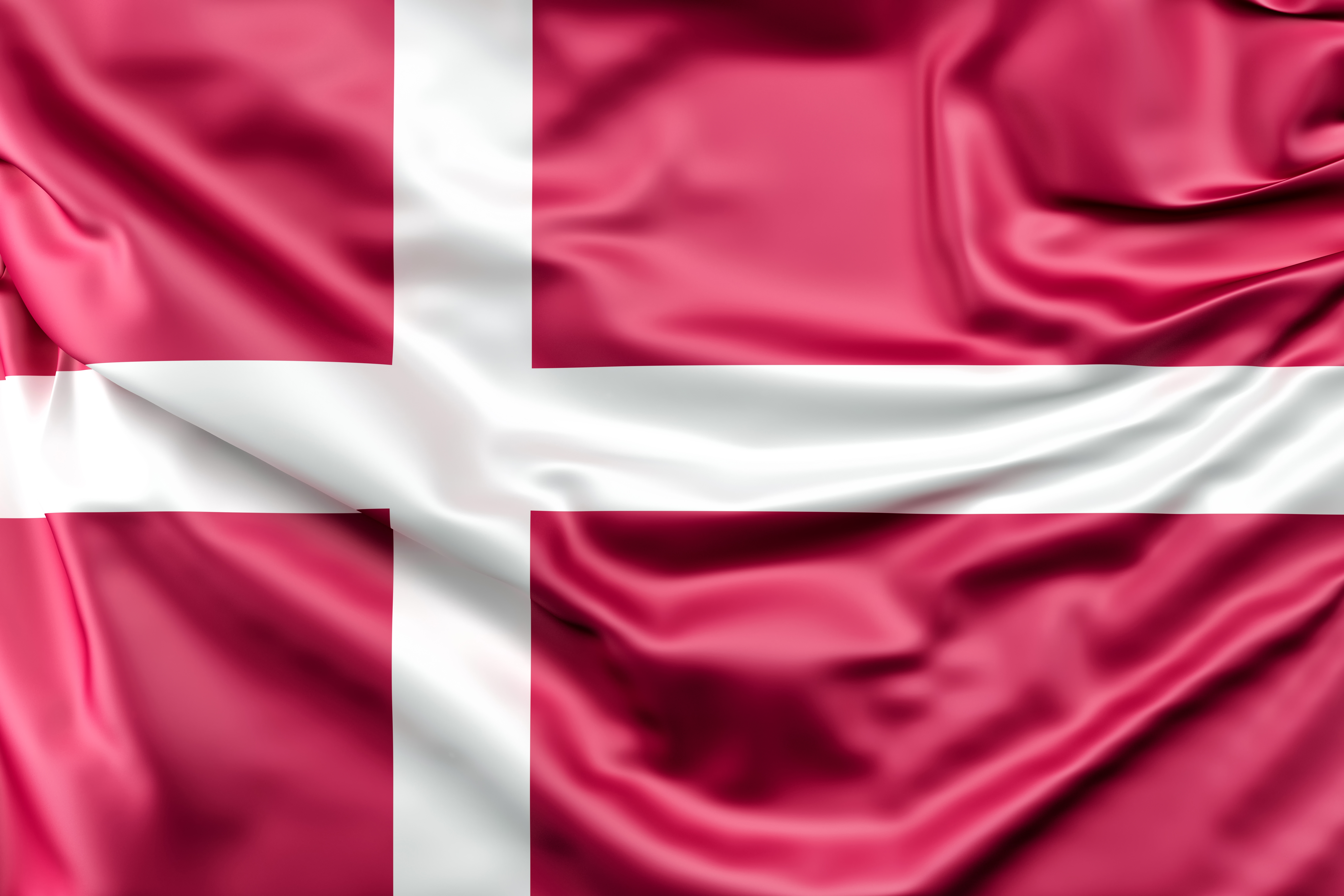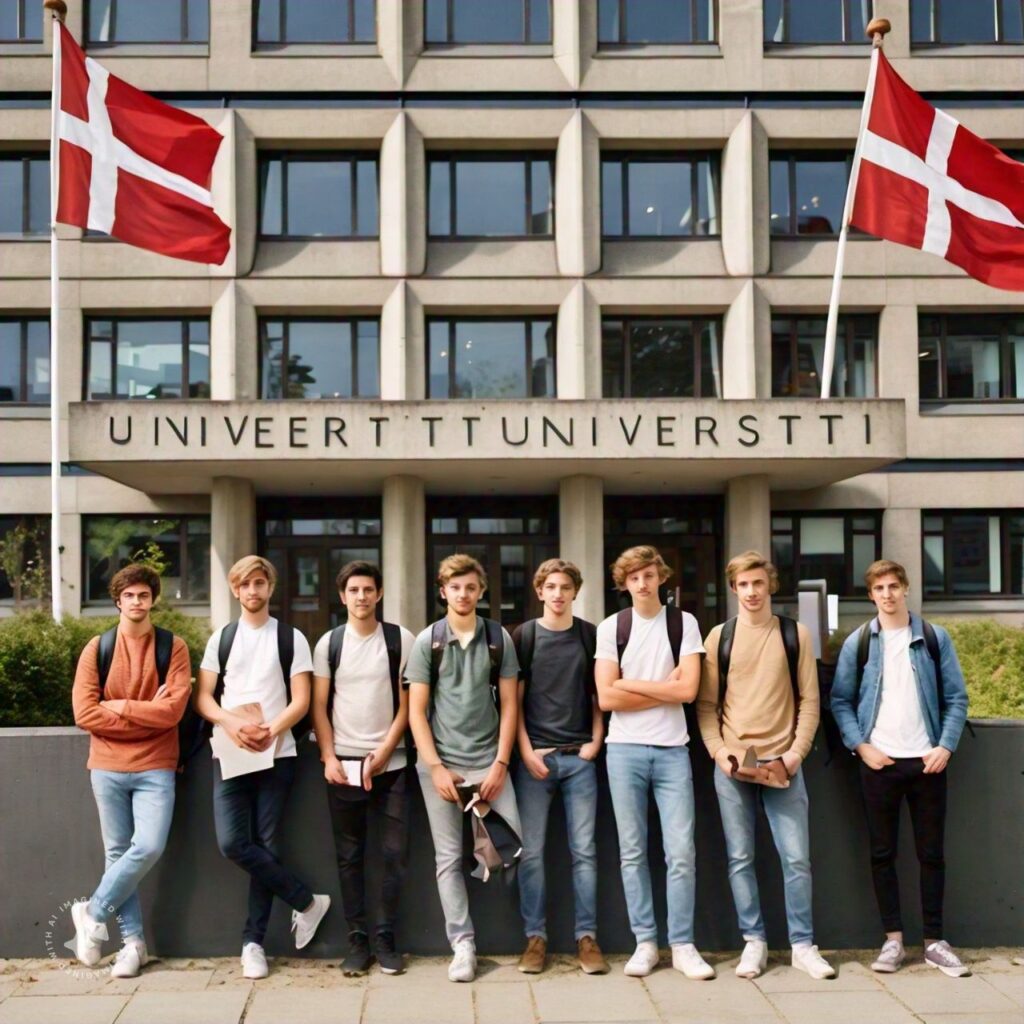Success Consultants
Denmark Study Visa (Spouse Can Go Along)
Denmark, known for its high standard of living, exceptional educational system, and welcoming environment for international students, is an increasingly popular destination for individuals seeking to further their studies abroad.
- No Tuition Fees for EU Students & Affordable for Non-EU Students
Denmark offers free education for students from the EU/EEA countries, making it an attractive option for many. For non-EU students, tuition fees are relatively affordable compared to other European countries. Additionally, scholarships and financial aid options are available for international students. - Work Opportunities During and After Studies
International students in Denmark are allowed to work part-time during their studies, and upon graduation, they have the opportunity to apply for a work permit. The Danish labor market is thriving in fields such as IT, engineering, medicine, and business, providing ample opportunities for students to gain relevant work experience. - World-Class Research and Innovation
Denmark is renowned for its research and innovation, especially in fields like renewable energy, biotechnology, and engineering. Studying in Denmark allows students to engage in cutting-edge research and contribute to global advancements.
When applying for a study visa to Denmark, students from non-EU countries can bring their spouses along. Here’s how the process works:
- Eligibility for a Denmark Study Visa
- Admission to a Danish Institution: To apply for a study visa, you must first be accepted into a recognized Danish university or educational institution.
- Proof of Financial Support: You must demonstrate that you can support yourself financially during your studies. This includes tuition fees and living expenses. The Danish Immigration Service requires proof that you can provide for your spouse as well.
- Health Insurance: You must have valid health insurance coverage during your stay in Denmark. If your spouse accompanies you, they will need to have health insurance as well.
- Documents Required for the Denmark Study Visa
- Valid Passport: Your passport should be valid for at least three months after your intended stay in Denmark.
- Admission Letter: A letter from the Danish university confirming your acceptance into an academic program.
- Proof of Financial Means: Evidence that you can support both yourself and your spouse financially during your stay. The minimum required amount is typically around DKK 6,000 per month for one person, with additional funds for your spouse.
- Health Insurance: Proof of health insurance coverage for the duration of your stay in Denmark, including for your spouse.
- Marriage Certificate: To prove that your spouse is legally married to you, you will need to provide a valid marriage certificate.
- Post-Graduation Opportunities for Spouse
- Once you have completed your studies in Denmark, your spouse can apply for a residence permit to remain in Denmark. This can be extended under the family reunification policy if you both plan to continue residing in Denmark after your studies.
- Secure Admission to a Danish University
Research and apply to universities or educational institutions in Denmark. Ensure the program is in English and meets your academic and career goals. - Prepare Required Documents
Gather all necessary documents, including your passport, admission letter, proof of financial support, and health insurance. Ensure your spouse’s documents are also prepared, including the marriage certificate and financial proof for both of you. - Apply for a Study Visa
Submit your application to the Danish Immigration Service or through the Danish consulate or embassy in your home country. Make sure to include all required documents, and specify that you are applying for a visa that allows your spouse to accompany you.
QUICK FACTS ABOUT DENMARK
Capital
Copenhagen
Population
- 5.9 million (2024)
Official Languages
- Danish
Location
- Northern Europe, part of Scandinavia
Popular Sports
- Football (Soccer), Handball, Cycling, Badminton
Major Cities
Copenhagen, Aarhus, Odense, Aalborg, Esbjerg

Government
Constitutional Monarchy, Parliamentary System
Religions
- Christianity (Folkekirken - Lutheran Church)
Currency
Danish Krone (1 DKK = ~11.50 INR as of November 2024)
Climate
- Winter (December to February): Average -1°C to 5°C
- Summer (June to August): Average 15°C to 22°C
Ethnic Composition
- 86.2% Danish
- 8.4% Other Europeans
- 3.2% Middle Eastern
- 2.2% Asians
- 0.6% Other ethnic groups
DENMARK HIGHLIGHTS
World-Class Education
Home to internationally recognized universities like the University of Copenhagen, Aarhus University, and the Technical University of Denmark, Denmark offers high-quality, research-oriented education.
Student-Friendly Cities
Copenhagen, Aarhus, and Odense are known for vibrant student life, easy public transportation, and a variety of cultural events.
Cultural Diversity
Denmark is known for its progressive, inclusive society, with a welcoming attitude toward international students.
Innovation Hub
Denmark is a leader in sustainability and innovation, offering students unique opportunities in green technology, architecture, and renewable energy.
High Quality of Life
Denmark consistently ranks among the top countries for work-life balance, environmental sustainability, and happiness
Strategic Location
As a gateway between Scandinavia and Europe, students in Denmark have easy access to other European countries for travel and work opportunities
Admission Prerequisites for Denmark Programs
Postgraduate Programs
- Degree: Recognized undergraduate degree (min. second-class honors or equivalent).
- English Proficiency: IELTS (6.5–7.0), TOEFL, or equivalent.
- Transcripts: Official academic records.
- Statement of Purpose (SOP): Personal essay explaining academic and professional motivations.
- Letters of Recommendation (LORs): 2–3 references.
- Work Experience: Required for business and management programs.
- Portfolio: For creative/design programs
Bachelor’s Level Courses
- Qualification: Completion of 12th grade or equivalent with required grades.
- English Proficiency: IELTS (6.0–6.5), TOEFL, or equivalent.
- Transcripts: Academic records from previous studies.
- Personal Statement: Explains motivations for the course.
Preparatory Master’s Courses
- Undergraduate Degree: Recognized bachelor’s degree.
- English Proficiency: IELTS (5.5–6.0), TOEFL, or equivalent.
- Academic Record: Transcripts from previous studies.
- Statement of Purpose: Reason for undertaking preparatory courses.
International Year One/Foundation Year
- Qualification: Completion of high school or equivalent.
- English Proficiency: IELTS (5.0–6.0), TOEFL, or equivalent.
- Transcripts: High school academic records.
- Personal Statement: Explanation of study interests and goals.
Additional Prerequisites to Study in Denmark
Visa Requirements:
- Apply for a Student Visa (if you are not from an EU/EEA country).
- Obtain Letter of Admission from a recognized Danish university.
Financial Requirements:
- Provide proof of funds for tuition fees and living expenses.
- Submit bank statements/financial evidence.
- Minimum funds required: DKK 6,000 per month for living expenses.
Health and Insurance:
- Danish Health Insurance: Non-EU students need to have health insurance through their home country or purchase private health insurance.
- EU/EEA students are generally covered under the Danish National Health Insurance system.
English Language Requirements:
- IELTS/TOEFL/PTE scores for non-native English speakers.
- Some universities offer English language support.
Interview (if applicable):
Required for competitive programs (e.g., business, medicine).
Entrance Exams:
Specific exams for certain courses (e.g., medicine, engineering).
Recommendation Letters:
Academic or professional references may be required.
Portfolio or Audition:
Required for art, design, architecture, or music courses.
Recognition of Prior Learning (RPL):
Assessment of non-equivalent qualifications or work experience.
Curriculum Vitae (CV):
Required for postgraduate programs or work-experience-based courses.
Denmark Student Visa Procedure
- Apply for the Student Visa online via the Danish Immigration Service website.
- Pay the visa application fee (~DKK 3,000) and show proof of financial capability.
- Letter of Admission from a recognized Danish university.
- Proof of funds for tuition and living expenses.
- Valid passport.
- English proficiency test results.
- Health insurance coverage (for non-EU students).
- May require submitting biometric information (fingerprints and photo) as part of the visa application process.
- Visa processing typically takes 2–3 weeks. Notifications are sent via email.

Approximate Annual Expenses for Education in Denmark
Tuition Fees
- Undergraduate: DKK 45,000–DKK 120,000 per year.
- Postgraduate: DKK 50,000–DKK 150,000 per year.
Living Costs
- Copenhagen: DKK 90,000–DKK 120,000 per year.
- Other cities: DKK 80,000–DKK 100,000 per year.
Miscellaneous Costs
- Books, supplies, and personal expenses: DKK 5,000–DKK 10,000 annually.
Start Your Study Abroad Journey in Denmark Today!
Studying in Denmark offers an incredible opportunity for both academic growth and personal development. With the option to bring your spouse along, your academic journey becomes a shared experience that can enrich your life in many ways.
📞 Contact Us: +91 88728-38422 / 01672-500422
📍 Visit Us: SCF-28, First Floor, Kaula Park, Near Harman Hotel, Sangrur
Take the first step toward studying in Denmark today with Success Education Consultants!
Note: This data is taken from resource websites. The actual data may vary.



